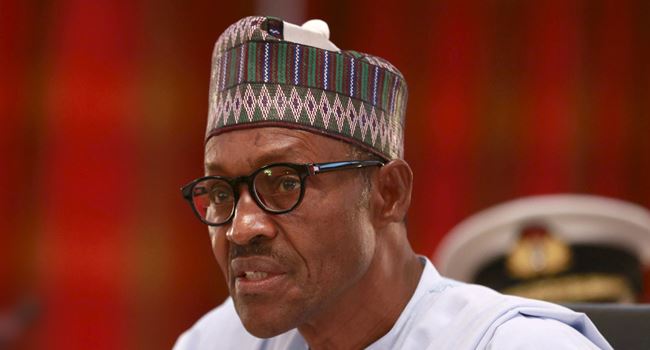Business
BUSINESS REVIEW: Here’s why Nigeria’s 2020 budget is not only pitiable but a disaster in waiting

Come 28th of November, nearly a month and half to the present, the 2020 Appropriation Bill will be passed as has earlier been hinted by the Chairman, House of Representatives Committee on Media and Public Affairs, Mr Benjamin Kalu. But before then, let’s appraise the content of the bill, measuring its economic sustainability and efficiency in driving development and job creation as promised by the Grand Commander and his allies.
Going by figures read out by the President while presenting the bill on Tuesday; Nigeria leans, again, on another deficit standingas its proposed revenue generation is estimated at N8.155 trillion whereas its gross value for the entire budget is estimated to be N10.335trillion.
How do we balance deficit?
Bearing this in mind, we already observed a deficit of about N2.18trillion. When this happens in a budget, often time, the government is lured into borrowing to augment its financial papers.
Hence, as Nigeria begins to strategise to balance its fiscal sheet, it’s interesting to find out how the government will be investing in Nigerians on certain articles that collectively bind the bricks of the nation, especially when placed under the beam of per capita offering.
Understanding per capita estimation
When economists attempt to measure the magnitude of a nation’s budget or GDP, they do so matching figures against the population of the country under review. In technical term, it is referred to as per capita.This is calculated by dividing the budget sum over population counts.
Read also: BUSINESS REVIEW: 13 quick steps Nigeria must take to attract quality foreign direct investment
With N46 billion (for instance)being proposed for health in the 2020 budget, what this tells us is that the government is generously willing to spend only a sum of two hundred and thirty naira(N230) on each citizen throughout a time frame of 365 days. We arrived at N230 by simply dividing N46 billion by 200 million, denoting Nigeria’s population figures.
The reality
This realization is not only grossly ridiculous but also humbling. As absurd as it might sound, the health budget simply cannot afford the purchase of mosquito nets for citizens at N350 recent market price. Hence, in order not to ask for too much, it is essential we understand that Nigeria (with its proposed N46 billion budget) cannot adequately fight common malaria in the event of an epic outbreak.
Perhaps, it was a good decision from the government not to grant MDAs the opportunity to propose new projects –it could have been worse. It should, thus, interest us to run through other allocations while we independently calculate the per capita value to further appreciate the government.
- Works and Housing: N262 billion;
- Power: N127 billion;
- Transportation: N123 billion;
- Universal Basic Education Commission: N112 billion;
- Defence: N100 billion;
- Zonal Intervention Projects: N100 billion;
- Agriculture and Rural Development: N83 billion;
- Water Resources: N82 billion;
- Niger Delta Development Commission: N81 billion;
- Education: N48 billion;
- Health: N46 billion;
- Industry, Trade and Investment: N40 billion;
- North East Development Commission: N38 billion;
- Interior: N35 billion;
- Social Investment Programmes: N30 billion;
- Federal Capital Territory: N28 billion; and
- Niger Delta Affairs Ministry: N24 billion.
Calculating for Works and Housing
Empirically, N262 billion will only amount to one thousand three hundred and ten naira (N1310) when per capita-ly distributed.
Era of innovative borrowing
The President, during the budget presentation, did not shy away from mentioning that the government would seek more credit instruments. Assurances that his administration would be innovative in its approach to borrowing, as soothing as it may sound, should leave cause for serious concerns
With N2.18 trillion outstanding deficits already, Nigeria looks well shackled, confronted by a debt trap that leaves the future mortgaged for generations yet unborn.
By Ridwan Adelaja…
Join the conversation
Support Ripples Nigeria, hold up solutions journalism
Balanced, fearless journalism driven by data comes at huge financial costs.
As a media platform, we hold leadership accountable and will not trade the right to press freedom and free speech for a piece of cake.
If you like what we do, and are ready to uphold solutions journalism, kindly donate to the Ripples Nigeria cause.
Your support would help to ensure that citizens and institutions continue to have free access to credible and reliable information for societal development.
























